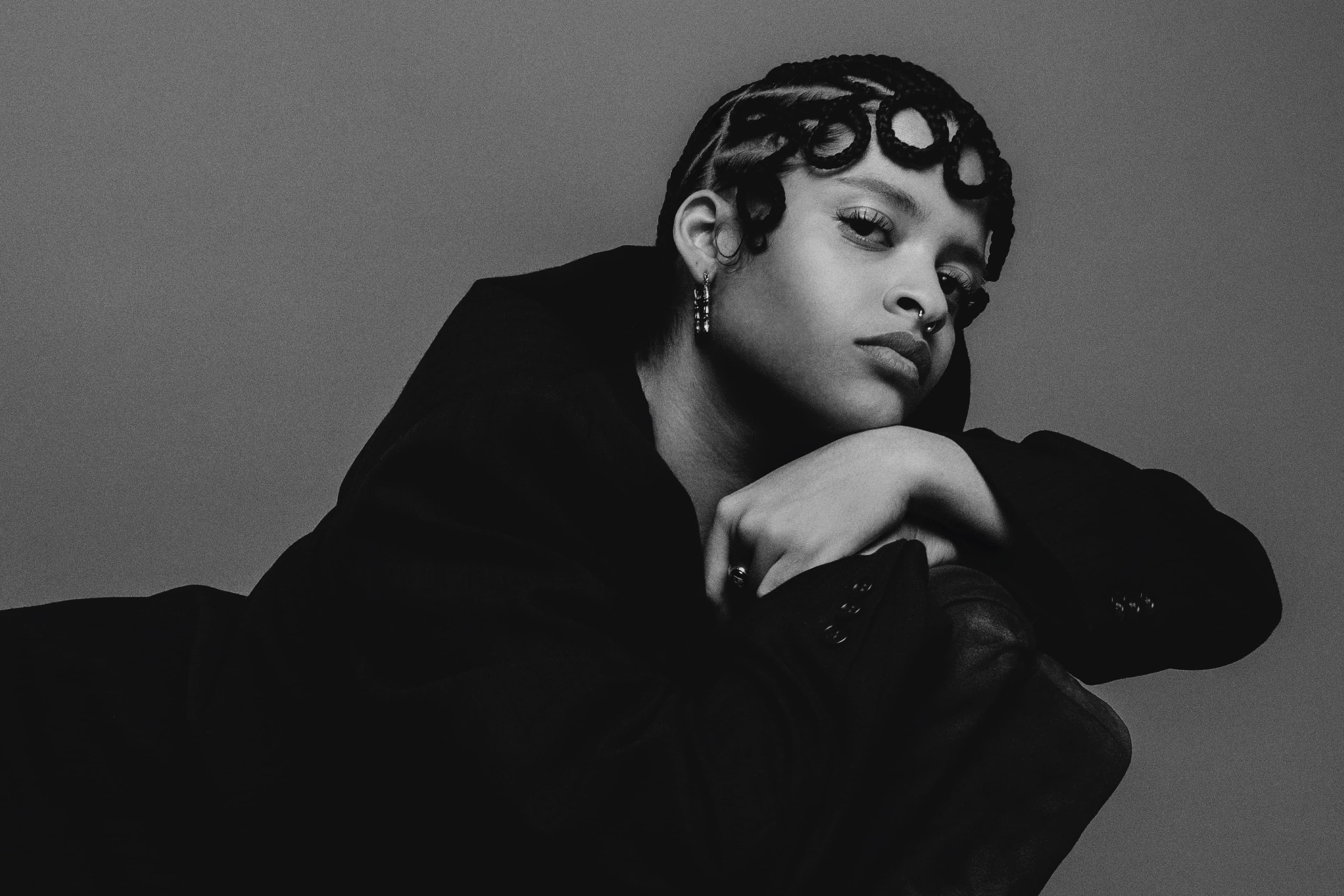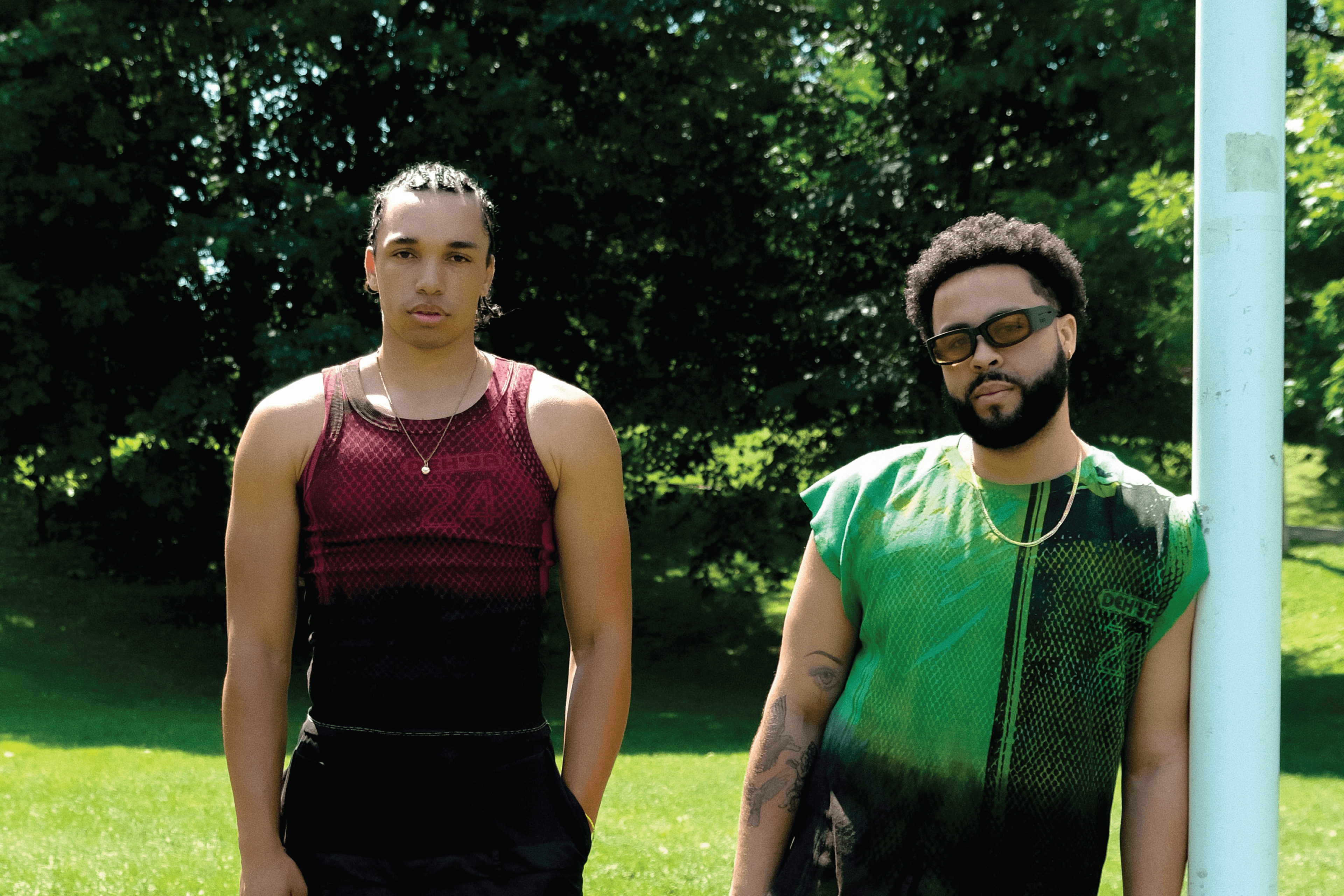In this interview, DJ and producer, G L O W Z I delves into how growing up immersed in Haiti's diasporic culture deeply influenced their sound, ideologies, and archival practice.
local·global: Growing up immersed in Haiti's diasporic culture, how has your heritage influenced your approach to and appreciation of music?
G L O W Z I: I would say that growing up alongside Haitian music lovers, within a tender abode where having a proper sound system was as important as owning fancy cutlery to receive loved ones and esteemed guests, enabled me to foster a deep appreciation of long sonic explorations, instrument tones, and their associated visceral effects from a very young age.
Known for their impressive lengths (often exceeding the 6 minutes mark), seemingly endless instrumental solos, and overall dramatic nature, Haitian sonic gems encompass an array of instruments, as well as a rich history of heart-wrenching pleas for liberation, love, and the list goes on.
As the aforementioned sonic realms are the ones that introduced me to music (as early as in my mother’s belly), I tend to be drawn to sonic gems that make me feel, that shift something in my body, and/or mind, and/or soul. I also attribute my love of long sonic offerings, complex bridges, warm sonic tones, quirky instruments, and poetic ramblings to the heritage I proudly carry.
LGW: What inspired you to pursue a career as a DJ and producer, and how did you decide on the type of music you wanted to play?
G: Sharing how I entered the realm of DJing makes my heart sing as it is a tender story I always recall with a smile on my face. I actually did not want to pursue a career as a DJ and producer per say - I was (lovingly) extracted from my bedroom to the dancefloor following my yearning to understand how people could mix with vinyl records. It is my curiosity coupled with having the chance of evolving in loving villages that enabled (and is still enabling) me to be G L O W Z I.
To keep the story short, a dear friend of mine named Djavan was infatuated with The Get Down at the time it aired. Enamoured with the art of mixing with records, he purchased a kit (2 turntables & a 2-channel mixer), and encouraged me to learn alongside him as he was well-aware of my love for music. I loved it, and so did my mother! So, next thing you know, she purchased a base kit for me, I went live on Instagram numerous times, and through these sessions, I shared my learning process with friends, strangers, and soon-to-be collaborators.
I never thought that these sessions would eventually lead to a first booking which would lead to being able to weave sonic voyages alongside brilliant artists, and learn from/with fellow ancestors-in-training whose craft makes my heart sing - what a blessing!
In what concerns my choice of music, as I am constantly tapping into new realms by letting my curiosity roam free (and that I yearn to keep it that way in near and distant futures), I established a little while ago that I would solely play “funky, spicy, and well-seasoned music”. This vow still stands today.
LGW: How has living in Montreal shaped your music and artistic expression, especially within the afro-caribbean music scene?
G: Living in Tiotià:ke/Mooniyang (Montreal) shapes my artistic expression as it is the first place I called home, the first home my parents met and molded following their abrupt departure from Haiti. The city is also a place of transition that has enabled me to cross paths with such an incredible amount of kind beings from all over afro-caribbean diasporas ranging from Jamaica to Senegal, Martinique, Eritrea, Haiti (of course), and the list goes on.
Getting to be immersed in the sounds of countries I have yet to see enables me to understand and celebrate the power of music, and more precisely, its ability to act as a balm for nostalgia, as a portal for depleted souls, and as a powerful manifestation tool for our deepest yearnings.
As a concluding remark, I would say that witnessing the impact of music on my and fellow afro-caribbean angels’ bodies, minds, and souls throughout my experiences as a sonic weaver makes me understand why Fela Kuti said the following words: “Music is a spiritual thing, you don't play with music. [...] You see, because when the higher forces give you the gift of music...musicianship, it must be well used for the gift of humanity.”
LGW: What’s your creative process like when preparing for sets? What inspires your multi-media explorations of sound, visuals, scenes, and textures?
G: That is such a complex and fun question! My creative process always shifts depending on the occasion for which I am called to pilot a sonic aircraft alongside fellow pilots and/or alone. However, there are certain steps I always go through such as setting my intentions and desired sonic destinations for an upcoming sonic endeavour. I have a notebook titled “sources & references” dedicated to the latter practice, and I use it prior to every single set I craft and execute.
As I absolutely adore collaboration, I love to share these intentions/references with dancers and/or collaborators for the night to make sense of how we can tend to our desires together. It is an absolute delight to partake in collaborative endeavors, so I try to make their preparation(s) as fun and collaborative as their execution.
In the event I open for a live performer, I take time to familiarize myself with their being and universes by viewing interviews, and reading articles on their practice(s) and selves. Based on the consulted material, I take on the fun and tricky endeavor of weaving a sonic voyage that simultaneously introduces me and the celebration’s headliner(s).
LGW: You have developed an imaginative language and a dedicated archival practice. Can you elaborate on what this entails and how it contributes to your music and overall Artistry?
G: What a kind way of coining the way I engage, mèsi anpil! My archival practice is a familial heirloom. My mother is the first archivist I ever met. From university ID cards, to pictures of friends enjoying the fresh water of Haitian beaches, and a portrait of her 4-years-old self, my mother was the portal that enabled me to tap into archiving under multiple forms.
During my pre-teenage years, my mother would collect every single thing I threw away - journal entries, doodles, chopped polaroids, etc. At the time, I found her practice of holding onto mundane things so odd, I did not understand why someone would yearn to archive themselves through everyday objects.
However, as I entered teenagehood, and was introduced to the skewed representation of “Blackness” within mainstream media, I finally understood just how important celebrating the mundane was as I would come to learn such archives were not celebrated, shown nor even acknowledged in pop culture.
The mundane only existed in my familial archives.
Following this realization coupled with finding my mother’s old 35mm Minolta camera, I began archiving just like her (and am still doing so today).
LGW: As a non-binary artist, how do you navigate and express your queerness through your music and art?
G: By simply being.
LGW: How do you hope to connect with and support the LGBTQ+ and diasporic communities through your music and other endeavors?
G: I hope to connect with and support LGBTQ+ and diasporic communities through my being and craft by vowing to keep on doing the labor(s) of love needed to remain intentional, kind, and honest - to keep on moving forward and advocating for us/me even when fear is right besides me.
LGW: Beyond music, how do you express yourself creatively and what other interests or projects are you passionate about?
G: There are so many ways one can express themselves creatively! I’ll name a few that currently make my heart sing - wearing different perfume fragrances depending on the weather, painting, doing digital and non-digital collages, crafting timelines for upcoming film endeavours, dreaming/napping, and alchemizing exchanges with loved ones into poems and/or love songs.
LGW: What are your hopes and dreams for the future of this world we’re living in? Are there any specific goals or projects you’re working to achieve?
G: My main dream for near and distant futures is that we, as ancestors-in-training, keep on loving until we can thoroughly enjoy the tenderness of a liberatory spring. My hope is that we keep on trying, on practicing, showing up for communal care in times of heightened despair.
These are endeavours I am already tapped in, so if ever you feel lonely or depleted, do not hesitate to reach out to me!
As Saul Williams says in his beautiful poem “Not In Our Name”; “another world is possible, and we pledge to make it real.”
LGW: How have your experiences with travel, movement, and migration influenced the sounds you play, and how do these themes manifest in your music?
G: Everything I create is an extension of me. What that entails is that every sonic voyage I weave is a personal and communal archive all at once. Indeed, my latest adventures, discoveries, feelings, and questionings are always mirrored in the sonic offerings I create.
From despair, to love, from smelling the sea to tasting a delicious dessert alongside loved ones, all of my travels, whether physical or spiritual, manifest in the artistic offerings I make. The sonic iterations of the latter archives can manifest themselves through specific sonic selections, the addition of field recordings, the implementation of ancestors’ advice, and even the way I dress to pilot a sonic voyage.
To learn more about G L O W Z I's practice and see where they're playing next, follow them at @glowzi.



